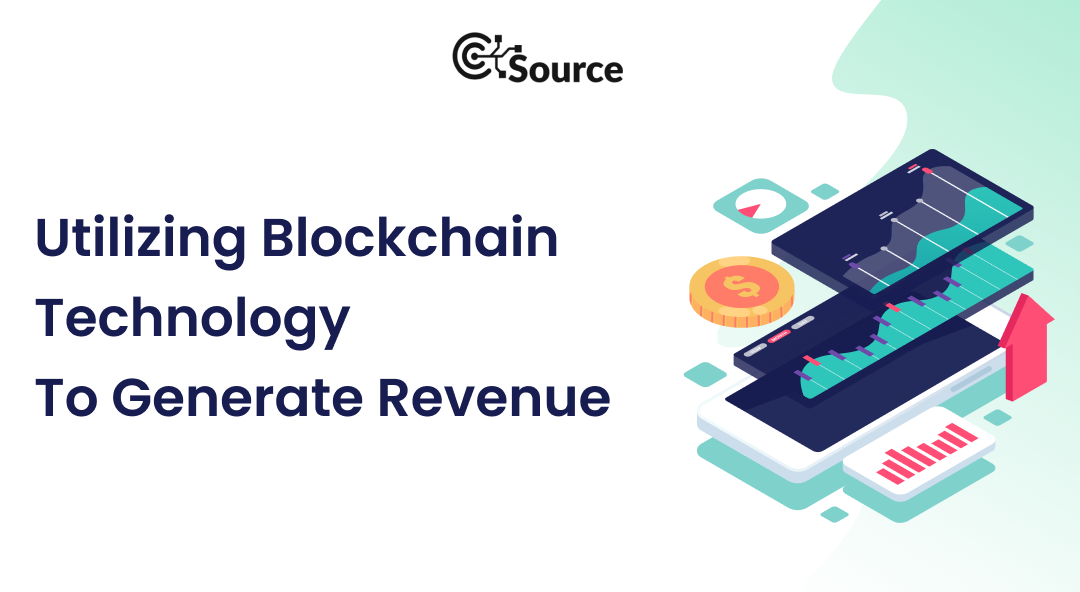Blockchain technology is rapidly changing the business landscape, and it has become a popular buzzword in recent years. While most people associate blockchain with cryptocurrencies like Bitcoin and Ethereum, it is a technology that has far-reaching implications beyond the financial industry. The blockchain is a distributed ledger technology that enables secure, transparent, and tamper-proof transactions. In this blog post, we will explore how businesses can utilize blockchain technology to generate revenue.
What is Blockchain Technology?
A blockchain is a digital ledger that records transactions on a decentralized network. Every block on the chain contains multiple transactions, and once a block is added to the chain, it cannot be altered or deleted. This makes it nearly impossible for anyone to manipulate the data. The blockchain is a transparent and secure way to record transactions, and it has the potential to revolutionize many industries.
How Can Businesses Utilize Blockchain Technology?
Blockchain technology has numerous applications, and businesses can leverage this technology to generate revenue. Here are some of the ways that businesses can use blockchain technology:
Smart Contracts
Smart contracts are self-executing contracts with the terms of the agreement between buyer and seller being directly written into lines of code. The code and the agreements contained therein exist on a decentralized blockchain network. Smart contracts are tamper-proof and automatically execute when certain conditions are met. This means that businesses can eliminate intermediaries, reduce transaction costs, and streamline processes by using smart contracts. For example, a company can use a smart contract to automate the payment process for suppliers. This would reduce the need for intermediaries and reduce the risk of payment fraud.
Supply Chain Management
Blockchain technology can also be used to manage supply chains. By using blockchain, businesses can track the movement of goods from the manufacturer to the end consumer. This provides transparency and traceability, which is essential for ensuring that products are produced and transported ethically. Blockchain technology can also be used to prevent counterfeit products from entering the supply chain. This would help protect the reputation of the brand and increase customer trust.
Decentralized Finance (DeFi)
Decentralized finance (DeFi) is a new trend in the financial industry that is disrupting traditional finance. DeFi uses blockchain technology to create a transparent, decentralized financial system. DeFi applications allow users to lend, borrow, and trade digital assets without the need for intermediaries. This creates a more efficient financial system and reduces transaction costs. Businesses can leverage DeFi to raise capital, access new sources of liquidity, and reduce costs associated with traditional finance.
Digital Identity
Blockchain technology can also be used to manage digital identities. By using blockchain, businesses can create a secure and tamper-proof digital identity system. This would eliminate the need for centralized identity providers and provide individuals with more control over their personal data. Businesses can use this technology to enhance customer experience and reduce the risk of identity theft.
Tokenization
Tokenization is the process of representing real-world assets as digital tokens on a blockchain network. By using blockchain technology, businesses can tokenize assets such as real estate, art, and other physical assets. This would enable businesses to fractionalize assets and increase liquidity. Tokenization would also enable businesses to access a global investor base and raise capital more efficiently.
Case Study: Coca-Cola
Coca-Cola, one of the world’s largest beverage companies, is utilizing blockchain technology to improve its supply chain management. In 2019, Coca-Cola implemented a blockchain-based platform to track its supply chain. The platform, developed by German software firm SAP, allows Coca-Cola to track the movement of ingredients from suppliers to bottling plants. The platform provides transparency and traceability, which is essential for ensuring that products are produced ethically. The blockchain platform has also helped Coca-Cola reduce transaction costs and increase efficiency.
Conclusion
In conclusion, blockchain technology has numerous applications that can help businesses generate revenue. Smart contracts, supply chain management, decentralized finance, digital identity, and tokenization are just a few examples of how blockchain technology can be used to improve business operations. By leveraging this technology, businesses can reduce costs, increase efficiency, and improve transparency. As more businesses adopt blockchain technology, we can expect to see new use cases and innovations emerge. The potential of blockchain technology is vast, and it will be exciting to see how businesses will continue to use this technology to generate revenue in the future.

